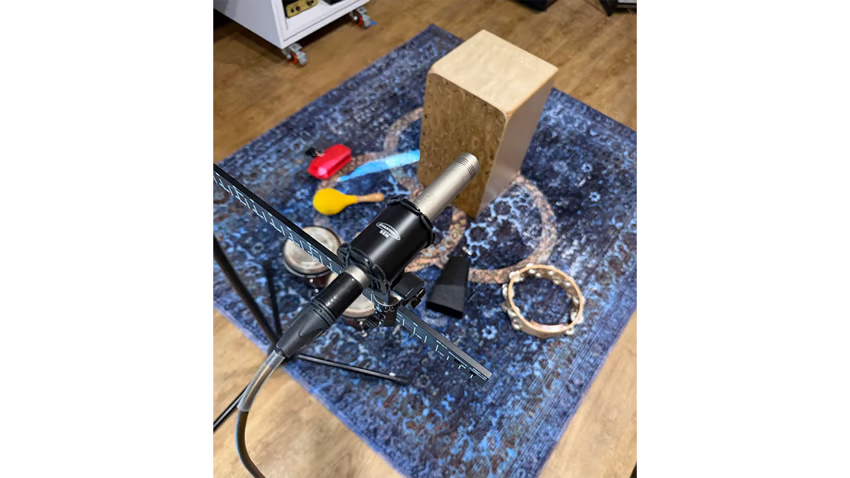The work of the IDEAS Committee (Inclusion, Diversity, Equity, Access, and Social Justice) is more vital than ever. In our new IDEAS Q&A miniseries, we sit down with Members of the USITT community to discuss how these principles shape their professional and creative lives. Recently, we spoke with costume designer, instructor, and USITT Commissioner DeMara Tamsel Cabrera about the importance of IDEAS within USITT and the live entertainment industry as a whole.
Can you share one example of how IDEAS have shown up for you in your professional life or creative practice?
For me, one instance made very, very clear the importance of inclusion and diversity. I was brought in to be a costume designer for two companies, and the first company that I worked for, I was brought in by a production manager. I'd worked with them before as a director, and it was right at the end of COVID. So our first production meeting was over Zoom, I got into the meeting, and aside from the person who hired me, I was surrounded visually by older white men. That was it. I was the only woman. I was the only person of color aside from the person who brought me in, and I was treated like my experience and my voice did not matter.
To contrast that, the very next show that I did was with another company who truly walked the walk of [IDEAS]. Not only did they actively seek out a diverse group of people to work on the show, but also to be in the show. It was a really interesting production. We were doing The Music Man, but it was a cast of six female and non-binary performers. This company really wanted to stretch the bounds of what we think of as traditional theatre and bring in people with diverse voices and experiences. And they did that. They were actively seeking diversity and inclusion rather than having it be something that might happen to them. They even would send out surveys afterward asking how the experience was for us beyond postmortems, but just what do you think of this company? How can we improve the whole company and the atmosphere? It was just such a contrast. I never experienced it that close together. It was a defining moment in my career, helping me to realize the importance of IDEAS to theatre, to design, and to myself.
In your view, how do the principles of Ideas connect to the mission and values of USITT?
USITT is so clear in their values that they are looking for IDEAS involved in everything that they do. It's even written into their mission. It's written into their core values that inclusion is such an important part. For instance, the IDEAS Committee, the focuses on EDI programming, 365 programming, not just the Conference. They have scholarships aimed at Members from underserved communities. Again, this is an organization that truly values the importance of everyone's learned experiences and wants to support those from underserved communities.
Can you tell us about a moment when you learned something new about IDEAS that changed the way you work or lead?
I finished graduate school in 2013 and went right into my first teaching job. I had a student who came to me and told me, “I know this is what is on your roster, but this is my name and these are my pronouns.” That was the first time I'd heard of that. It helped me get to know them better, how to work with them, and respect who they are as a person. But it also changed the way that I interact with all of my students. I was an early adopter of the name and pronoun introductions. The first day of class we go around and we say our name, our major, something fun we did over the summer, and 10 years ago or so, I introduced pronouns as well.
At first, even some of the students had no idea what I was talking about. They'd say, “girl pronouns” or “boy pronouns”. I had to give them examples, and I would have every person introduce their pronouns. At first, it was met with some resistance by some students, but it was also met with such joy and appreciation by students who wanted and needed that as part of their introduction. So I was an early adopter of that, and it became part of my practice ever since that moment. Now, it's sort of standard practice for most of us in education. But I'm happy to say that I was one of the educators who was early on adopting it because of those brave students who came to me and told me who they were.
What is one IDEAS-related action or commitment you personally make to help our industry?
As a member of the IDEAS Committee, we're encouraged to choose a focus on something that's important to us that we want to help with. And as an educator, the thing that I choose to focus on is internships and how internships that have no pay or low pay and basically perpetuate the inequity in our industry. And as we said before, USITT is committed to acknowledging and trying to break down that inequity. My personal commitment is to find ways to help break that down. We are going to be doing webinars throughout the year, helping students understand what to look for in an internship, what the different terminologies mean, what they can ask for, how to find out the cost of living, what things could be included in an internship, what questions they should be asking, and more.
Internships are so important for education, but also getting them experience to get their foot in the door. In the industry, it's also about making those connections. They're so crucial to the start of somebody's professional life. So by creating situations in which people from underserved communities cannot apply for, accept, or take those positions, we're perpetuating that inequity. It's my hope that we, as an institution at USITT can find a way to support those students and say, “We want to help break down these barriers. How can we help you accept this very important internship, and how would that improve your life and your profession?”
To learn more about IDEAS programs and initiatives at USITT, visit here.
More News
Support USITT
For many 501(c)3 nonprofit organizations, USITT included, donations are a lifeline. We are able to continue to expand our online offerings to our Members and to our industry thanks to Membership dollars and the generosity of our donors.







